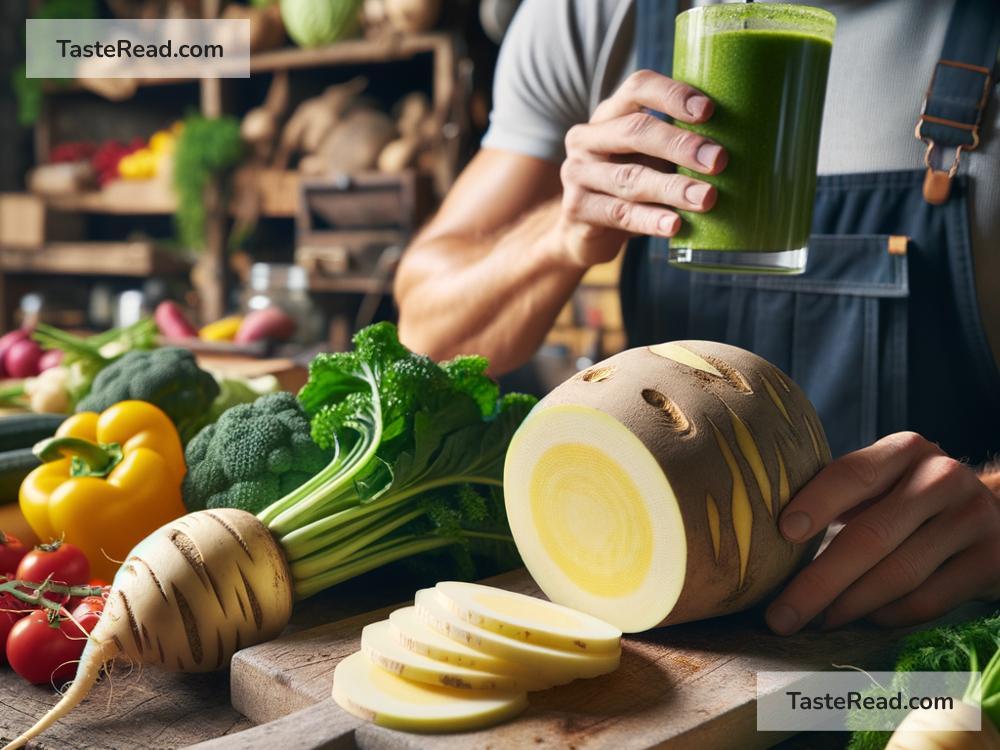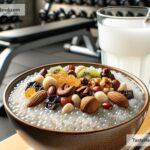How Rutabaga Helps Manage Fatigue in Physically Intensive Jobs
When your job demands heavy lifting, long hours on your feet, or repetitive, energy-draining tasks, fatigue can feel like an everyday struggle. Whether you’re a construction worker, a nurse, a delivery driver, or anyone in a physically intensive role, staying energized is essential for your performance, health, and overall well-being. While plenty of advice exists on how to fight fatigue, one thing that’s often overlooked is the power of food. Specifically, one humble vegetable you might not think much about—rutabaga—could be a game-changer for your energy levels.
What is Rutabaga?
Rutabaga is a root vegetable that looks like a cross between a turnip and a cabbage. It has a slightly sweet and nutty flavor, making it a versatile ingredient for soups, stews, and roasted dishes. Rutabagas are rich in nutrients that support energy production and overall health, making them a natural ally for anyone dealing with physical fatigue.
Why Does Fatigue Happen in Physically Intense Roles?
Before we dive into why rutabaga can help, let’s quickly talk about what causes fatigue in physically intensive jobs. When your body works hard, it burns through its energy stores, particularly carbohydrates and fats. To keep going, you need a steady supply of fuel and nutrients. If your energy reserves get depleted or you’re not replenishing lost nutrients, you’ll start to feel tired, sluggish, and less productive.
Other causes of fatigue include dehydration, muscle soreness, poor sleep, stress, and even the physical strain of repetitive movements. A balanced diet that includes nutrient-rich foods like rutabaga can help address many of these issues.
How Rutabaga Fights Fatigue
Rutabaga contains a unique mix of nutrients that support your body’s energy systems while promoting overall health. Here’s how this unassuming vegetable can help you manage fatigue:
1. Rich in Carbohydrates for Energy
Rutabagas are packed with healthy carbohydrates, which your body needs for fuel. Physically demanding jobs can quickly drain your glycogen stores (your body’s energy reserves), making you feel tired and sluggish. Eating foods like rutabaga helps replenish those stores so you can keep moving without hitting a wall.
Unlike simple carbs, which cause sugar spikes followed by crashes, rutabaga provides complex carbs. These take longer to digest, offering a steady energy release throughout your day. That means no mid-afternoon slump and more consistent performance.
2. High in Vitamin C for Fight Against Free Radicals
Long hours of physical labor can cause oxidative stress in your body, leading to inflammation, soreness, and fatigue. Rutabagas are an excellent source of vitamin C, an antioxidant that helps combat this oxidative stress. By reducing damage caused by free radicals, vitamin C supports faster recovery and less fatigue.
Vitamin C also strengthens your immune system, which is essential if you’re working hard in environments that put a strain on your body. A stronger immune system means fewer sick days and more stamina to tackle your tasks.
3. Provides Fiber for Sustained Energy
Fiber plays an important role in keeping your digestive system running smoothly and maintaining steady energy levels. Rutabagas contain plenty of fiber, which helps regulate the absorption of nutrients and keeps you full for longer. For physical workers who often miss meals or grab unhealthy snacks due to busy schedules, rutabaga can be a satisfying, healthy option that will keep hunger at bay.
4. Source of Potassium for Muscle Support
Physically demanding tasks can leave your muscles tired, sore, or even cramping. Rutabagas are rich in potassium, a mineral that helps your muscles recover and reduces cramps. Potassium also works to balance fluids in your body, which is especially important if you’re sweating a lot during the day. Managing hydration and muscle health helps fight fatigue and keeps you active longer.
5. Boosts Digestion for Better Nutrient Absorption
If your digestive system isn’t working optimally, you might not be absorbing enough nutrients to support physical activity. The fiber in rutabaga promotes gut health by keeping things moving smoothly. A healthy gut means better nutrient absorption, which translates into more energy to power through your workday.
6. Low-Calorie Option for Weight Management
For workers in physically intensive roles, maintaining a healthy weight can be important for reducing strain on your joints and muscles. Rutabaga is low in calories while still being filling and nutrient-dense, making it a great choice for anyone trying to stay energized without overloading on unhealthy foods.
How to Add Rutabaga to Your Diet
Adding rutabaga to your meals is easy! Here are some simple ways to enjoy it:
- Mashed Rutabaga: Boil rutabagas until tender and mash them like potatoes. Add a splash of olive oil, garlic, and salt for flavor.
- Roasted Rutabaga: Slice it into cubes, toss with olive oil and spices, and roast in the oven for a sweet and crispy side dish.
- Rutabaga Soup: Blend cooked rutabaga with broth, onions, and carrots to make a creamy and energizing soup.
- Raw in Salads: Grate raw rutabaga into salads for a crunchy and fresh addition.
Conclusion
Fatigue is common for those in physically intensive roles, but rutabaga offers a natural, nourishing way to fight back. With its steady energy from complex carbs, muscle-repairing potassium, immune-boosting vitamin C, and gut-supporting fiber, this often-overlooked vegetable deserves a spot on your plate. Whether you roast it, mash it, or add it to soups, rutabaga is an affordable, versatile, and delicious way to give your body the fuel it needs to power through tough days. So why not give it a try today? Your energy levels might just thank you!


